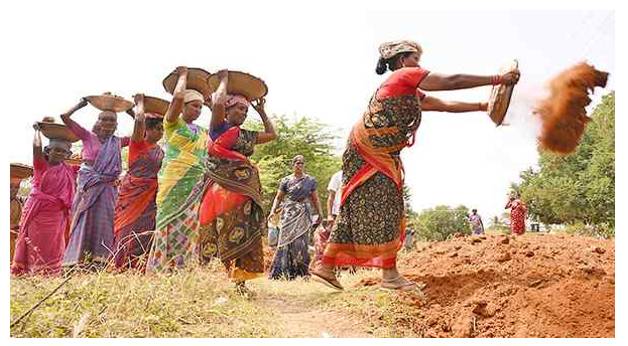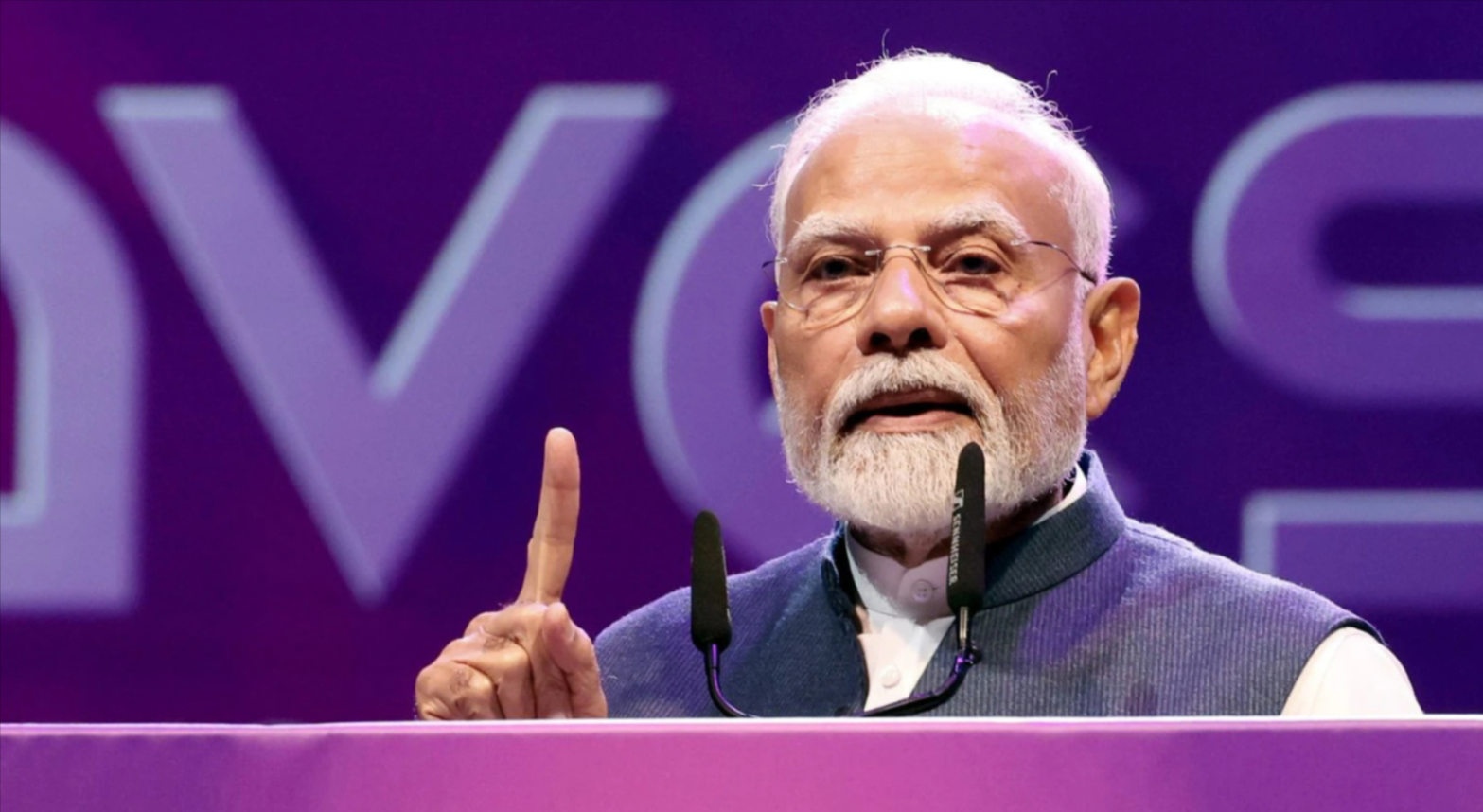
27 lakh workers removed from MGNREGS database as Centre conducts e-KYC
Nearly 27 lakh workers’ names were removed from the database of Mahatma Gandhi National Rural Employment Guarantee Scheme (MGNREGS), the Centre’s rural jobs scheme, between October 10 and November 14, far exceeding the 10.5 lakh additions during the same period.The spike in deletions coincides with the Centre’s push to conduct e-KYC — an electronic know your customer process — for all workers, to weed out ineligible beneficiaries.
This “unusual” rate of deletions from the database was flagged by Lib Tech, a consortium of activists and academicians. Over the last six months, deletions added up to about 15 lakh. But in just one month, they shot up to 27 lakh — nearly double the earlier six-month total.
In the first six months of the financial year 2025-26, according to the analysis, the scheme recorded net additions of 83.6 lakh workers, as 98.8 lakh workers were added, against 15.2 lakh deletions. By mid-November, however, net additions had fallen to 66.5 lakh, effectively wiping out 17 lakh workers in a single month.
The analysis also noted that 6 lakh of these beneficiaries were active workers, defined as those who have worked at least one day in the past three years.
Highest in A.P.
States with high e-KYC completion rates are leading the trend in deletions. In Andhra Pradesh, where 78.4% of workers have completed e-KYC, there were 15.92 lakh deletions. Tamil Nadu (67.6%) saw 30,529 deletions, and Chhattisgarh (66.6%) reported 1.04 lakh.
Senior officials at the Union Ministry of Rural Development, however, ruled out any correlation between the e-KYC drive and the deletions. A senior official, speaking on condition of anonymity, said that verification of the MGNREGS job card is a continuous process and the onus is on State governments and ultimately, the gram panchayats, to carry this out.
Additionally, every five years, job cards must be renewed. This exercise is currently underway. “We have also issued a Standard Operating Procedure (SOPs) for the deletion of any job card, which includes putting out the job cards finalised for deletion in public domain, allowing time for the beneficiaries to file an appeal, and a final approval from the gram sabha,” a top official at the Ministry said.
Prevent ‘misuse’
The e-KYC process requires the mates, or MGNREGS supervisors, to click pictures of each of the workers and upload them on the MGNREGS’s digital attendance application, the National Mobile Monitoring System (NMMS), to match these photographs with their Aadhaar data.
One of the reasons the government introduced e-KYC as an additional layer of verification was the discovery that the NMMS platform was being “misused”.
On July 8, the Ministry issued a 13-page note to State governments on the issue. Under NMMS, geo-tagged photographs of the workers are to be uploaded twice a day. It was found that “irrelevant or unrelated photographs” were being uploaded. In many cases, “photo-to-photo capturing instead of live work images” was being done. There was also “mismatch in actual vs recorded count”, according to the Ministry note.
It said that a mismatch in the gender composition of workers was found at several worksites. The same photo of workers in multiple muster rolls, mismatch in workers in morning and afternoon photos, and non-uploading of photos in afternoon sessions were also identified as problems.
The Ministry had directed States to ensure that these photographs and the attendance of workers were verified at the gram panchayat, block, district and State levels.
The Ministry had also made the Aadhaar Based Payment System (ABPS) mandatory from the beginning of 2023. Using a worker’s unique 12-digit Aadhaar number as her financial address, this system requires a worker’s name and other demographic details to match exactly on her Aadhaar, job card, and bank account. This was also introduced to eliminate “ghost and duplicate job cards” but led to the exclusion of many genuine workers as well.
“The current deletion pattern echoes the roll out of the Aadhaar based payment system, which too saw deletions rise by 247% between 2021-22 and 2022-23,” said Chakradhar Buddha, senior researcher at Lib Tech.
“Each time a new Aadhaar-linked technology is introduced — whether it was ABPS earlier or e-KYC now — it is brought in to strengthen verification, but ends up creating new hurdles for genuine workers and triggering large-scale exclusions. This surge in deletions shows that new technologies should not be introduced indiscriminately, without assessing their impact on workers,” he said.
During the WAVES Summit in Mumbai, Prime Minister Narendra Modi underlined India's developing position in the global creative economic sector. During his opening address, India earned the description of an "orange economy" because cultural and creative sectors drive both financial growth and job creation. Rajnikanth and Mukesh Ambani joined
The Mahahtra government achieved a historical milestone by returning to India the historic sword of Raghuji Bhosale I during a Sotheby’s auction in London, which belonged to a notable 18th-century Maratha ruler. The state of Mahahtra achieves its first success in acquiring historical artifacts from international auctions. The bidding

Stay updated with The Hindu Editorial Vocab24 app, your definitive source for breaking news and comprehensive coverage from India and around the globe. Whether it's political developments, business updates, sports highlights, the latest technology trends, or current events, The Hindu brings live, accurate, and reliable news directly to your device.
Don’t fall for sensationalized or fake news shared online. Read and share accurate updates with friends and family through The Hindu Editorial Vocab24 app. Download it today!
News Coverage in The Hindu Editorial Vocab24 App
Breaking News: Receive instant notifications on breaking news stories as they unfold. Stay informed about major events and developments in India and around the world with live blogs, news in shorts videos, and concise articles.
Politics: Get the latest updates on Indian politics, including elections, policy changes, government decisions, and political events that shape the nation.
Business and Economy: Stay ahead in the economic landscape with detailed business news and market analysis. Learn about stock market trends, financial reports, corporate news, and economic developments to make informed investment decisions.
Current Events: Follow stories on social issues, policy changes, global events, and daily current affairs, tailored for UPSC and other competitive exam preparations.
Technology: Keep up with the latest gadgets, innovations, and tech trends. Read expert reviews and analyses in short, concise updates on cutting-edge technology from India and beyond.
Sports: Never miss a moment of your favorite sports. Get live scores, match reports, and expert analysis on cricket, football, tennis, and more.
International News: Stay informed about global events and geopolitical developments, including the Russia-Ukraine war, Israel-Palestine conflict, and other key international stories.
Local News: Stay connected to your community with the latest updates on city events, issues, and local news. Coverage includes hyperlocal updates from cities like Bangalore, Chennai, Delhi, Hyderabad, Mumbai, Kolkata, and more.
Trending Topics: Discover what's trending today with the most talked-about stories and hot topics across India and the world.
Experience journalism that values integrity, accuracy, and reliability. Download The Hindu Editorial Vocab24 app today and stay connected with the world.
Subscribe to our newsletter!

























